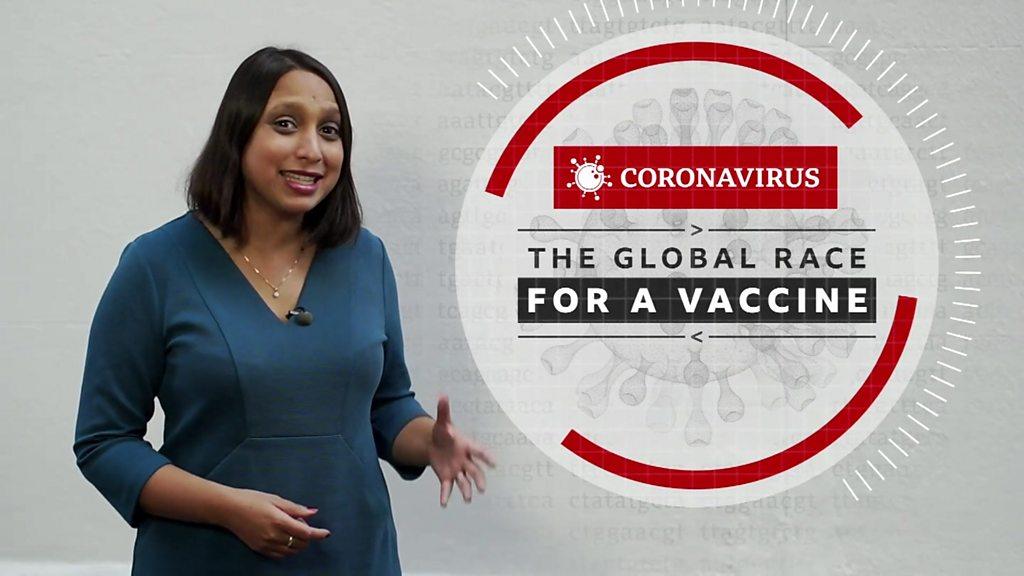Coronavirus: New York imposes measures in 'last chance' against new wave
- Published
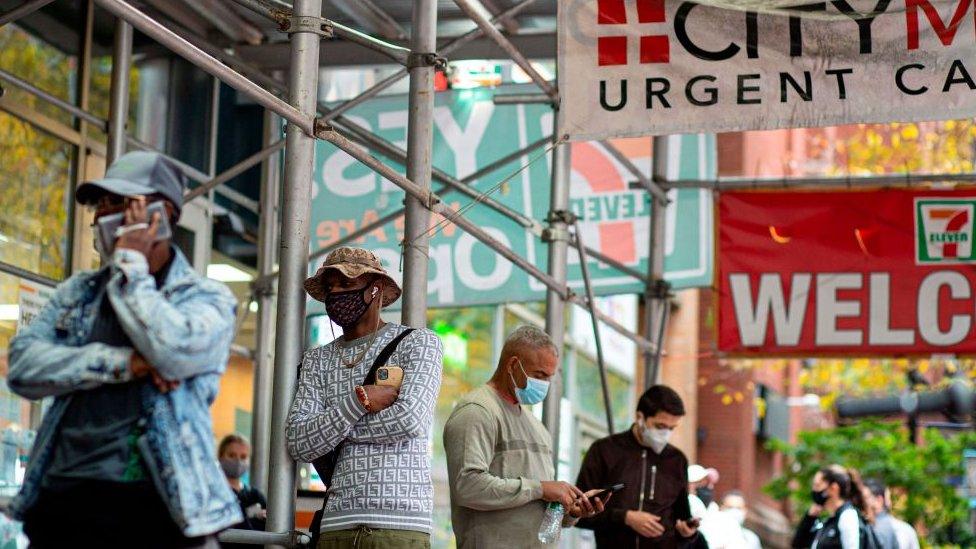
Late-night gatherings have been identified as a key source of infection spread in New York
New York has introduced new restrictions aimed at curbing coronavirus, with Mayor Bill de Blasio warning it was the city's "last chance" to stop a second wave.
Bars, restaurants and gyms must close by 22:00 and people can only meet in groups of 10 or less.
The US is seeing a surge in coronavirus - a record 65,368 Americans were in hospital on Wednesday.
The Covid Tracking Project also reported a record 144,270 new cases.
An average of over 900 people a day are now dying with the disease.
More than a million new cases in November pushed the total confirmed cases to over 10 million nationally, with 233,080 deaths so far.
The US has been seeing more than 100,000 new cases per day over the last eight days in what experts say may be a worse outbreak than those seen in the spring and summer.
Experts warn hospitals across the country could soon be overwhelmed.
On Wednesday a member of President-elect Joe Biden's Covid-19 advisory panel said a four to six week lockdown could bring the pandemic under control.
Fauci: "We have got to double down" to fight Covid
Dr Michael Osterholm said that the government could borrow enough money to cover lost income for businesses during a shutdown.
What's happening in New York?
"We're seeing a national and global Covid surge, and New York is a ship on the Covid tide," state Governor Andrew Cuomo said on Wednesday.
New measures come into effect on Friday affecting hospitality after Mr Cuomo said contact tracing identified late-night gatherings as key virus spreaders in the state.
Allow X content?
This article contains content provided by X. We ask for your permission before anything is loaded, as they may be using cookies and other technologies. You may want to read X’s cookie policy, external and privacy policy, external before accepting. To view this content choose ‘accept and continue’.

If the rate of spread of infection continued to rise, Mayor Blasio said the New York City's public school system would close and children would begin online classes.
"This is our last chance to stop a second wave. We can do it, but we have to act now," Mr de Blasio tweeted.
New York City was badly hit by the virus earlier this year when nearly 18,000 people died with Covid-19 in March, April and May, according to the city's Department of Health and Mental Hygiene., external
What's the picture nationwide?
States across the US have broken new case records this week with Texas becoming the first state to hit one million total cases on Tuesday. If Texas were a separate country, it would rank 11th in the world for most cases.
Other states, including Illinois, Wisconsin, Minnesota, California and Florida, have also seen numbers rise. CBS News reports 15 states saw the numbers of patients in hospital due to the virus double in the last month.
Some hospitals, such as in Idaho and Missouri, have had to turn patients away because they ran out of room.
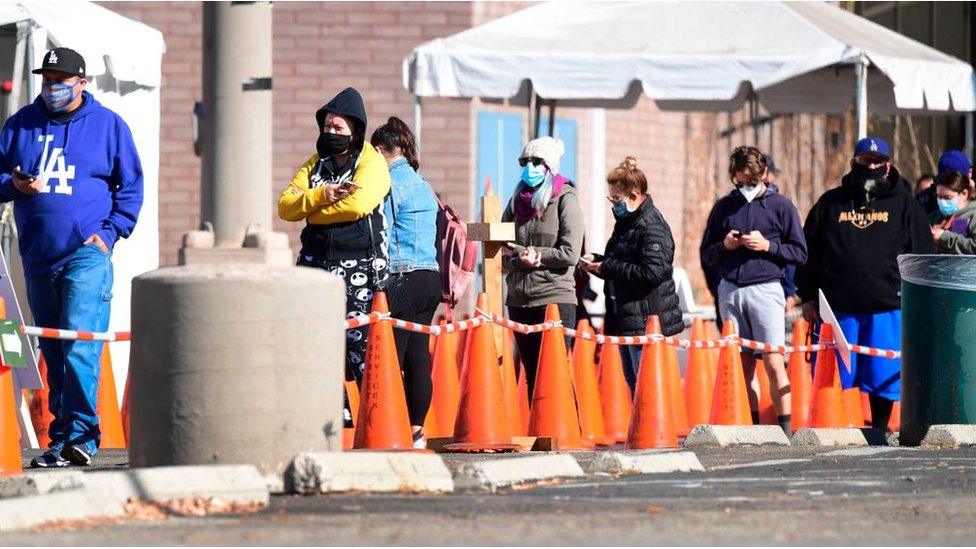
A queue for testing in California
State leaders have been re-imposing pandemic restrictions as a result. Residents of Wisconsin and Nevada have been urged to stay at home for two weeks and in Minnesota, bars and restaurants must shut by 22:00.
On Tuesday, Mr Osterholm warned of a "perfect storm". Speaking to CBS This Morning, Mr Osterholm said there was "no question that our hospitals are about to be overrun". He noted "the darkest days of this pandemic between now and next spring", before the vaccine arrives.
Mr Osterholm, who heads the infectious disease research centre at the University of Minnesota, said during the summer spike after the Labour Day national holiday, new cases rose to 32,000 a day.
"Now we're running in the 120- to 130,000 cases a day," he said. "Do not be at all surprised when we hit 200,000 cases a day."
The same day, US infectious disease chief Dr Anthony Fauci offered some hopeful news. He said the new Covid vaccine by Pfizer was expected to go through an emergency authorisation process in the next week or so. Human trials suggest it is 90% effective.
How close are we to Covid immunisation?
Dr Fauci told MSNBC: "I'm going to look at the data, but I trust Pfizer, I trust the [Food and Drug Administration]. These are colleagues of mine for decades, the career scientists."
Amid the ongoing outbreak, the US Centers for Disease Control and Prevention (CDC) has updated its research around masks, saying that wearing one not only protects others but also the person wearing the mask.
Previous guidance had rested on the idea that the main benefit of mask-wearing came from potentially stopping an infected person transmitting Covid to others.
The CDC referenced several studies, including one case where two Covid-positive hair stylists interacted with 139 clients - but of the 67 clients researchers tested, none developed an infection. The stylists and all clients had worn masks in the salon.
Another study looking into the outbreak aboard the USS Theodore Roosevelt aircraft carrier found mask-wearing seemed to have reduced the risk of virus transmission by 70%, the CDC said.
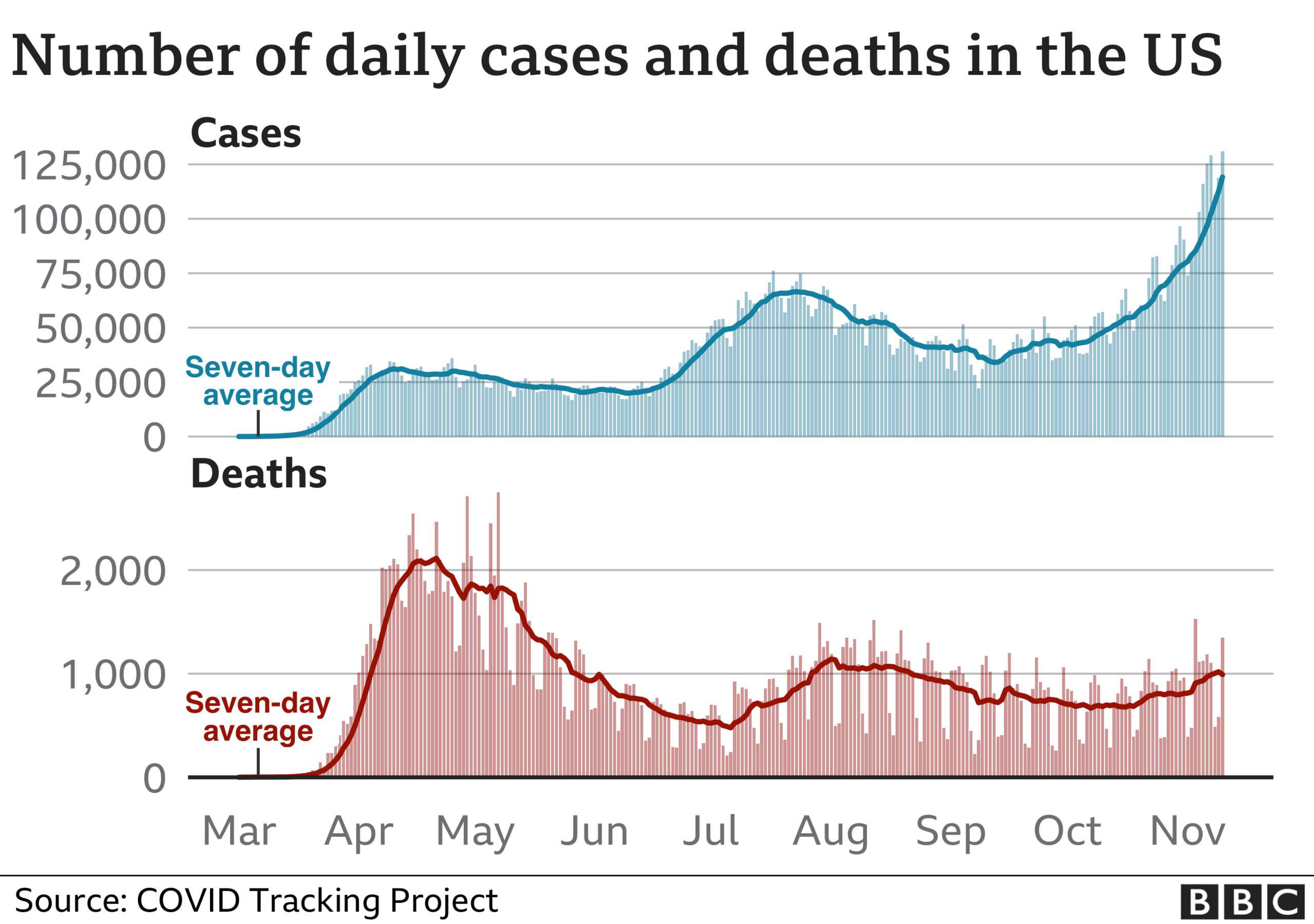


How are the new measures affecting you? Share your experiences by emailing haveyoursay@bbc.co.uk, external.
Please include a contact number if you are willing to speak to a BBC journalist. You can also get in touch in the following ways:
WhatsApp: +44 7756 165803
Tweet: @BBC_HaveYourSay, external
Please read our terms & conditions and privacy policy
If you are reading this page and can't see the form you will need to visit the mobile version of the BBC website to submit your question or comment or you can email us at HaveYourSay@bbc.co.uk, external. Please include your name, age and location with any submission.
- Published6 October 2021

- Published23 August 2020
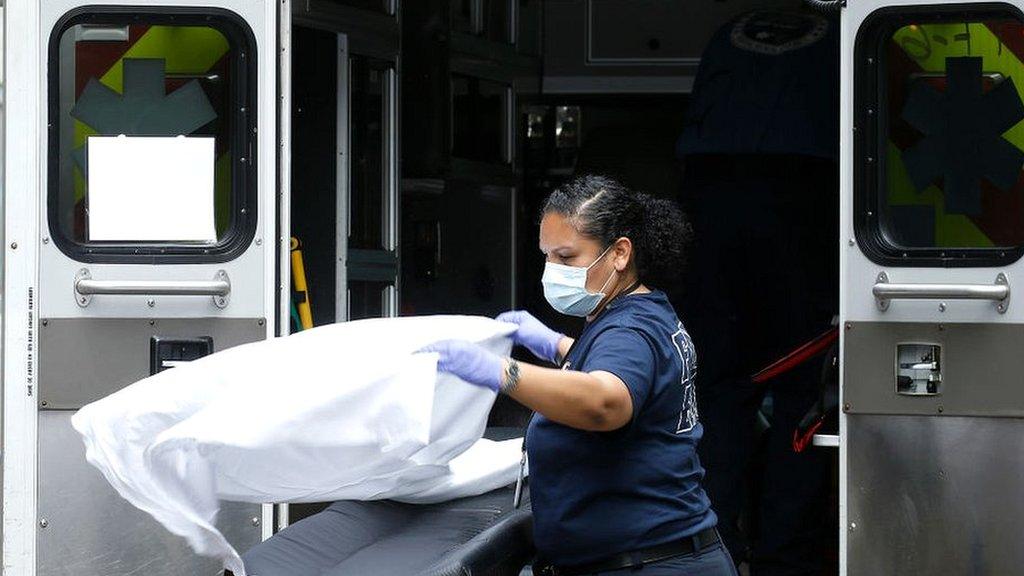
- Published11 November 2020
